The post Promising Condo Resale Market In 2023: 6 Top-rated MOP ECs appeared first on Wing Tai Holdings Singapore.
]]>With relatively low prices, Executive Condominiums (EC) have consistently been a popular choice in Singapore’s real estate market, since they provide an opportunity for more people to own a private home.
In this blog, Wing Tai Holdings will introduce the most promising executive condominium plans in Singapore’s condominium resale market for 2023. These 6 top-performing projects will MOP (Minimum occupation period) in this year, and will be privatized after 5 years. Don’t miss this golden opportunity!
Top 6 MOP Resale Executive Condominium in 2023
Treasure Crest: Hidden Gem in Condo Resale Market
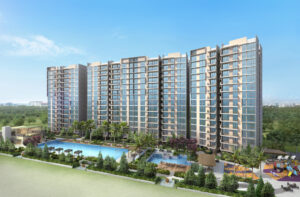
Location: Anchorvale Crescent
Quantity of units: 504
Nearest MRT/LRT stations: Cheng Lim LRT (269m), Sengkang MRT (849m)
Average price PSF: S$1,350-S$1,400
Treasure Crest is an executive condominium located in Sengkang’s Anchorvale area. It offers 3 and 4-bedroom units, making it a perfect choice for big families with more than two children.
There are countless conveniences, notably near amenities such as a Sheng Siong supermarket, a coffee shop, and the Sengkang General Hospital, which has a food court and various dining options. For only one LRT stop away, you can see Compass One shopping mall and Kopitiam Square, which owns a hawker center and wet market.
This EC is the best choice for families with young children, as there are five primary schools situated within a 1km radius. These include Springdale Primary, Nan Chiau Primary, Punggol Green Primary, Anchor Green Primary, and Compassvale Primary.
Residents can also enjoy the nearby Sengkang Riverside Park for a relaxing stroll and the amenities at Sengkang Sports Complex. Additionally, a park connector links to Punggol Waterway Park and Coney Island.
Have you loved this apartment already? Explore more in this blog: Treasure Crest (EC) Condominium
Sol Acres: Highlight in Condo Resale Market

Location: Choa Chu Kang Grove
Quantity of units: 1327
Nearest MRT/LRT stations: Teck Whye LRT (267m)
Average price PSF: S$1,300-S$1,400
Up to two executive condominiums are set to MOP in Choa Chu Kang this year, offering a range of units suitable for families, couples and investors. Sol Acres is the first development, with 1 to 5-bedroom units. There is only one unit containing 1 bedroom.
This condo is conveniently located near Sheng Siong at Teck Whye Shopping Centre and FairPrice Xpress at Keat Hong Mirage, which serves a range of food and beverages stores. 3 primary schools within 1km of Sol Acres include South View Primary, Choa Chu Kang Primary, and Teck Whye Primary.
Though this building is not situated near an MRT station, residents can easily access Bukit Panjang MRT or Choa Chu Kang stations via the nearby Teck Whye or Keat Hong LRT stations.
Has this lovely condo won your heart? Secure a free consultation from us now to decide the best choice for your investment: Sol Acres Condominium
The Visionaire
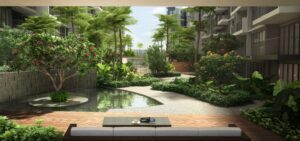
Location: Canberra Drive
Quantity of units: 632
Nearest MRT/LRT stations: Canberra MRT (503m)
Average price PSF: S$1,088-S$1,300
Located just a 7-minute stroll from the Canberra MRT station, The Visionaire which features 2, 3, and 4-bedroom units suits families of various sizes. Its prime location is opposite the newly launched Bukit Canberra, a sports and community hub with a polyclinic, gym, and an 800-seat hawker center.
Another plus point is within walking distance to Canberra Plaza, Sun Plaza and Sembawang Shopping Centre. All of which offer an array of F&B outlets, shopping malls, and other facilities. Additionally, Wellington Primary and Sembawang Primary are both located within 1km of the property.
Every detail information, price and rental comparison are all included in this blog: The Visionaire Condominium
Parc Life

Location: Sembawang Crescent
Quantity of units: 628
Nearest MRT/LRT stations: Sembawang MRT (666m)
Average price PSF: S$1,280-S$1400
Parc Life with 2, 3, 4 and 5-bedroom units, is situated just a short distance from The Visionaire. It is also MOP-ing this year and located a 10-minute walk from Sembawang MRT station.
Residents can find supermarkets and eateries nearby, such as Prime and Kimly Coffee Shop at the HDB Sun Breeze development, which is just a 3-minute walk away. Sun Plaza and Sembawang Shopping Centre are within walking distance for more shopping options.
For school options, Canberra Primary, Sembawang Primary and Wellington Primary are located near Parc Life.
Every detail information, price and rental comparison are all included in this blog: Parc Life EC
Wandervale
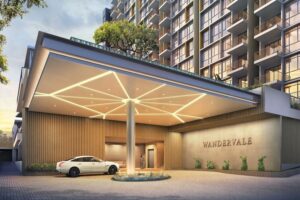
Location: Choa Chu Kang Ave 3
Quantity of units: 534
Nearest MRT/LRT stations: Choa Chu Kang MRT (647m)
Average price PSF: S$1,250-S$1,350
Wandervale, situated closer to Choa Chu Kang Central, offers 3 and 4-bedroom units suitable for families from four to six members.
The EC is conveniently located just a 9-minute walk away from Choa Chu Kang MRT station on the North-South line. Residents can also walk to Lot One shopping mall, which offers a FairPrice supermarket and a range of dining outlets. Teck Whye Shopping Centre is also nearby, offering a variety of coffee shops and restaurants.
Wandervale is within 1km of primary schools such as Choa Chu Kang Primary, South View Primary, and Teck Whye Primary. Additionally, residents can enjoy a stroll to Choa Chu Kang Park and the newly-built SAFRA Choa Chu Kang, which features a sheltered swimming area, futsal court, running track, and other services.
Choose Wandervale : Wandervale Executive Condominium
The Criterion
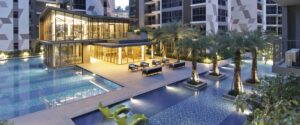
Location: Yishun Street 51
Quantity of units: 505
Nearest MRT/LRT stations: Khatib MRT (1.4km)
Average price PSF: S$1,250-$1,350
One of the three ECs that will MOP in the Yishun and Sembawang area this year is The Criterion. It offers 2 to 5-bedroom units for couples, young families, and even multi-generational families.
Naval Base Primary, Hua Min Primary and Northland Primary stay within 1km of The Criterion, with half of its blocks within 1km of North View Primary.
Furthermore, Sheng Siong supermarket is just a 5-minute walk away, while Wisteria Mall has a FairPrice Finest, as well as food and drink outlets, hair and beauty salons, enrichment centers and more. Additionally, several coffee shops are available in nearby HDB apartments.
While The Criterion is not located near an MRT station, it can be reached in less than 15 minutes by bus to Khatib MRT.
Has The Criterion met your criteria? Read this blog for more information: The Criterion Executive Condominium for Sale
We have recently sold a ground floor unit at The Criterion at a good price for the home owner. They can progress towards their next property near to their child’s primary school.
And still not sure which EC is best for your budget and requirements?
Leave a message to receive a prompt and free valuable advice from our professional team!
The post Promising Condo Resale Market In 2023: 6 Top-rated MOP ECs appeared first on Wing Tai Holdings Singapore.
]]>The post Moving To Singapore: 20 Tips For A Successful Transition appeared first on Wing Tai Holdings Singapore.
]]>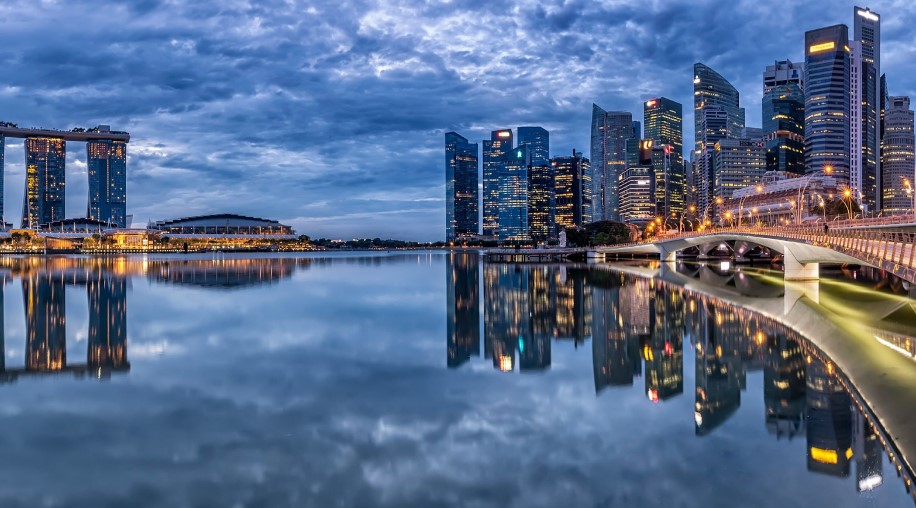
Are you considering a move to Singapore? If so, there are a few things you should know before making the jump. This Southeast Asian city-state is a fascinating place with a rich history and culture. It’s also one of the world’s most expensive places to live. Singapore is a vibrant and cosmopolitan city with a lot to offer its residents. However, there are also a few things to be aware of, such as the high cost of living and the intense competition for jobs. This blog post will explore everything you need to know before moving to Singapore.
What is Culture Shock?
Culture shock is a phenomenon that occurs when a person is suddenly exposed to a new culture. It can be as simple as being transferred to another country for work or school or as dramatic as moving from one continent to another. When you move to Singapore, it’s important to understand how cultural differences affect your daily life and how you should react when things don’t go smoothly.
Culture shock happens because of the different values, norms, and behaviors that exist in different cultures. Your experience here will depend on your personality traits, but some general guidelines can help you adjust quicker and better.
Symptoms of culture shock are:
- Difficulty in sleeping and waking up
- Feeling anxious, irritable, or angry for no apparent reason.
- Feeling restless and unable to sit still for long periods.
- Feeling nervous or apprehensive about the future.
- Reduced productivity at work due to lack of concentration
- Cultural and racial criticism is unwarranted.
- The constant complaints about the climate
- based on ideological assumptions about one’s heritage
- concern for the purity of water and food
- fear of touching locals
- Resulting in poor performance
- lack of interest in learning the language
- worrying about being cheated or robbed
- The desire to communicate with intelligent people.
- Reluctance to leave.
- over health concerns
- Hopelessness
- Loneliness
What are your tips for coping with culture shock in Singapore?
Culture shock can be effectively managed by stepping back from an event that has upset you, assessing it, and looking for appropriate explanations and responses. Take the following steps:
- Is it possible to learn more about how your host culture treats you? It may seem rude to you, but it might not be rude. Social customs differ from culture to culture. Don’t be afraid to ask questions about them when things seem incomprehensible. Whenever you feel that something seems senseless, remember that your hosts may adhere to social rules that seem strange to you.
- Try to minimize the irritation by finding a way to avoid or reduce involvement. Ask if the situation is necessary? If it isn’t, find ways to prevent or minimize involvement.
- What memories do you have of your home country that you miss the most? If you miss something, find a way to meet it or replace it with something else. For example, if you miss your favorite American steak, visit a steakhouse or buy some at the supermarket. Singapore is so cosmopolitan that expatriates are spoilt. With Singapore’s variety of food from many cultures, it’s easy to find something from home.
- Even though it’s difficult to make friends with people from different cultures, it’s also important to have friends from your own country or region. Having friends in your own country or area is also important to re-energize you for interacting cross-culturally. However, being isolated in either group alone can make the adjustment more challenging.
- Get in touch with people in your country and ask how they handled similar situations.
- Improve your language proficiency by watching TV, listening to the radio, and reading books in English.
- Laughter helps heal misunderstandings and embarrassments. Singaporeans are generally friendly and helpful.
- A nutritious diet and exercise can also reduce stress.
- Experiencing some culture shock when you move to a new country is normal, but more severe symptoms mean that the adjustment process has slowed down, so you need help.
- Spend time at a place that feels comfortable to you, such as the East Coast beach in Singapore.
- Keep your mind off your homework and problems, and have fun throughout the week or day.
- Take a step back when you feel your problems are building up. Understand each one separately and work on it one by one.
- Consider seeing a counselor if you consistently suffer from headaches and stomach aches. If medical doctors and medications do not work, you may need to see a psychiatrist.
- A regular life schedule is essential, for instance, eating meals simultaneously every day and sleeping and exercising regularly.
- If you are depressed, you should first ask yourself: “What was my expectation? Why was it unreasonable?” Sometimes you may have too high expectations of people, so you will reduce stress by lowering your expectations and trying to understand their intentions.
- Since it is a multi-ethnic and multi-cultural city, expatriates are treated as part of the family in Singapore.
- Make sure you ignore your old assumptions and expectations. Be open to learning new things. Compare how the other country lives with your own. Learn about your values and attitudes and those in the other country.
- When you move to a new culture, it is important to reevaluate your values and outlook. As you live in the new culture, do that.
- The transition period is a time for cultural adjustment. You may want to take a short trip, read a book in your native tongue, get plenty of rest, write a letter, call home, eat good food, and spend time with friends. Don’t forget to mention what you enjoy most about living in the host culture.
- The “shock” of living in a new culture may initially be disturbing and a little frightening, but it gradually eases with time. You understand that reactions and perceptions of others toward you — and your reactions to them– often aren’t based on personal values but clashes of cultural values– is a practical realization. You will be able to avoid serious difficulties once you understand how and when cultural values and behaviors are likely to conflict. As you become more skilled in recognizing those conflicts, your ability to make adjustments will increase.
Cost of Living
Singapore offers both relatively cheap living and luxurious living. Salaries are competitive, and numerous perks (such as recreation facilities and bonuses) make working here an enjoyable experience.
In Singapore, you will find that food courts (often air-conditioned) and hawker centers are great for inexpensive, hearty meals. However, restaurant prices are higher.
A compensation package for expatriates may include transportation/car allowances, housing, childcare, school fee payments, entertainment allowances, and employment-related benefits. According to past Mercer’s survey, Singapore is much easier to live in than Hong Kong or Beijing, so expatriates can live there at a much lower cost. According to a survey of 144 cities, Singapore’s cost of living dropped eight spots from 24th to 32nd. The study measures the prices of more than 200 commodities in each town, including housing, food, clothing, household items, transportation, and entertainment.
Renting or Buying a home
Housing costs have decreased in Singapore over the past few years, making it possible to own a home. There are many resources available to help you in your search. The Singapore Property Classifieds has immense information to help you get the job done. These factors should be taken into account when buying or renting a house:
Locations:
Consider your family’s lifestyle when choosing a few potential locations to live in. Consider factors such as distance to work, schools, transportation, and places you frequent. You can also find a House Hunt Guide to assist you in selecting the perfect location and housing in which you wish to relocate.
Size:
You will need to consider the size of your home, the number of bedrooms, and where you will spend most of your time. Have you thought about the next couple of years – do members of your family plan to move in or out? Where will you spend most of your time?
Facilities:
You can choose between a condominium-type property that offers amenities such as swimming pools, tennis courts, and other condominium amenities or a recreation club that offers a broader selection of leisure time activities.
Amenities:
Are our nearby shops, banks, and markets readily available?
Schools Area
The information on international schools will enable you to make a better decision about where to live. In choosing a new neighborhood, schools can be a major factor. If you are looking for information on international schools, Singapore’s education system, and the admissions process to local schools, look no further than International Schools, Education.
Childcare
If you need help choosing your children’s childcare center based on where you live, please check out our list of Pre-Schools at International Schools, Education – Pre-Schools. Singapore alone has over 370 childcare centers.
Taxes & Taxable income
Singapore usually has lower income taxes than in many other developed nations because of its well-regulated tax system. Singapore income tax is paid by all expatriates working in Singapore. Inland Revenue Authority (IRAS) assesses, collects, and enforces a variety of taxes, duties, and levies. As of January 1, a calendar year begins at midnight and ends at midnight, so tax calculations are based on this calendar year.
Residency status
In Singapore, income tax is a law that applies to individuals, companies, and bodies of persons but has been statutory extended to include both. Generally, a company refers to any organization incorporated or registered under Singapore law or elsewhere, and a body of persons refers to political organizations, corporations, collegiate organizations, or fraternities. Your income tax contributes to government expenditures.
Residents taxes
Upon deducting the appropriate reliefs, residents are taxed at a progressive rate ranging from 2% to 24%(24% from year of assessement 2024, before that would be up to 22%). Residents are taxed at a graduated rate of up to 24 percent on employment income from Singapore.
Singapore residents are taxed on income derived from or accrued within Singapore and income received from outside Singapore. In Singapore, residents are only taxed on income earned or derived.
Non residents taxes
Non-residents pay a flat rate of 22 percent on employment income from Singapore, with no personal relief. A non-resident director’s remuneration does not qualify for the reduced rate, and withholding tax (WHT) at 22% (24% from year of assessment 2024) must be deducted from remuneration paid to a non-resident director.
If you are taxed at the resident or nonresident rates, your taxes will be affected significantly.
Transportation
As Singapore has convenient public transportation, owning a car might not make sense here. Singapore’s most common public transportation modes include trains (also called MRT), buses, and taxis.
If you are interested in purchasing a car, you may consider purchasing a second-hand (used) car in Singapore. A vehicle that is ‘old’ has been around for more than ten years. Although the car has depreciated greatly, there is also the risk of potential “wrecks” and write-offs being sold as supposedly solid models. You are buying a vehicle that is older than ten years can be challenging and expensive. To buy a car in Singapore, you must obtain a Certificate of Entitlement (COE) and pay an exorbitant sum once the ten-year period expires.
NTUC income accounts for 70% of the car insurance market in Singapore. If you ask friends which insurer they use, you may be able to find a cheaper car insurance plan.
Pets Relocation
Singapore’s quarantine system
Planning can make moving less stressful, especially if you have a pet.
In all cases, your pet will be quarantined for 30 days unless you come from England/Ireland or Australia/New Zealand. A quarantine period for animals under four months old will last up to 30 days. The license must be completed and delivered two weeks before import. Each animal is required to pay S$50.
It is highly recommended to book the quarantine dates early to coincide with your move. The pet owner must bear all import and quarantine fees. Contact the Animal, Meat & Seafood Regulatory Branch for more detailed information.
Dogs from the following breeds are not allowed in Singapore:
- Pit Bulls, such as American Pit Bull Terriers, American Staffordshire Terriers, Staffordshire Bull Terriers, and American Bulldogs;
- Tosa;
- Neapolitan Mastiff;
- Akita;
- Fila Braziliero;
- Dogo Argentino; and
- All crosses of these breeds.
Regulations
The risk of contracting rabies and other diseases is reduced by implanting microchips matching veterinary records on all dogs brought into Singapore since May 1, 2001. In addition to certifying that the dog has been vaccinated, examined, and healthy, the health documents must also include the microchip identification code of the dog. There are no dog diseases in Singapore, such as rabies, which can threaten the local dog population and be infectious. It would be possible to trace where an infected animal came from by implanting a microchip beneath the skin of the dog’s neck, thus preventing further imports.
What you need to do
Schedule your quarantine appointment. Make flight arrangements. Please do not arrive at quarantine after 1.00 pm on Saturday, Sunday, or Public Holidays because it will be closed.
Pet import licenses cost S$45. You need to obtain a copy of the import license for your pet from your sponsor by fax. It must be in a container that meets airline specifications to be allowed to travel with your pet.
It is required that all dogs arriving in Singapore receive vaccination against Distemper, Hepatitis, and Parvo Virus no more than seven days before reaching. Your veterinarian can provide you with an International Health Certificate. All imported dogs must have an ISO-compatible microchip.
Call Changi Animal and Plant Quarantine one working day before your pet arrives at (65) 6266 0939. When you arrive at the airport late at night, your pet will be kept in a temporary holding facility until you go through customs.
Your pet must pay a 15-dollar tax before it can leave the airport. A pet is transferred to the quarantine station at 9 am. When you are getting your pet into Singapore safely, you will need your passport at all times.
Arriving at quarantine
- If you wish, you can arrange a quarantine stay for your pet before visiting.
- Admission fees apply.
- Only cash is accepted.
- Pets are charged S$70 for the airport pickup and rabies vaccination.
Once your dog is out of quarantine, you must license it. The license fee for a male dog or sterilized female dog is $10, and the price for an un-sterilized female dog is $50. You must provide a sterilization certificate with a complete description of your female dog if it has been sterilized, or you will be charged a higher fee. Dog licenses are valid for one year and must be renewed annually. Licensing tags must be attached securely to the pet’s collar. Licenses can be helpful when the dog is lost and can be found easily with the license. Cats do not need licenses.
Final Thought
In conclusion, there are a few key things to remember when moving to Singapore. First, be prepared for a humid climate. Second, learn some basic Singlish. And finally, don’t be afraid to embrace new experiences. By following these tips, you’ll surely have a successful transition to life in Singapore.
At Wingtaiholdings.sg, our team help expats and foreigners in moving to Singapore smoothly by finding suitable residential properties be it for renting or to buy a condo in singapore.
The post Moving To Singapore: 20 Tips For A Successful Transition appeared first on Wing Tai Holdings Singapore.
]]>